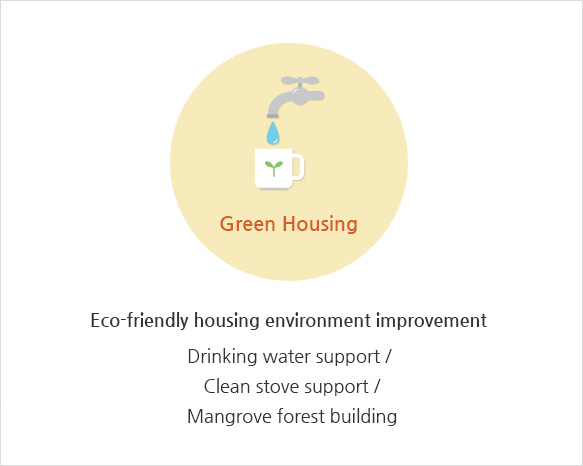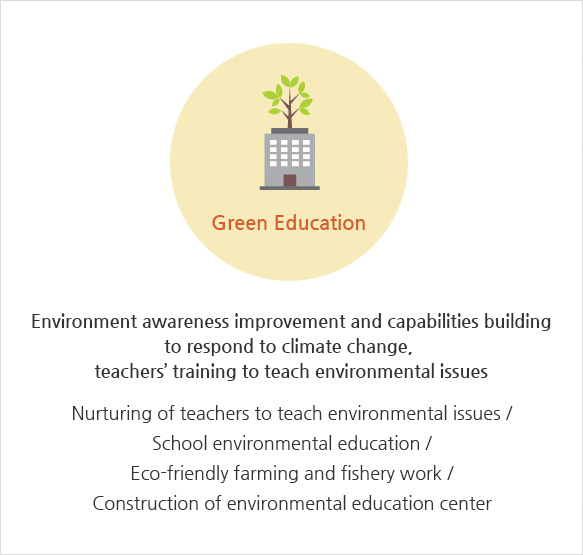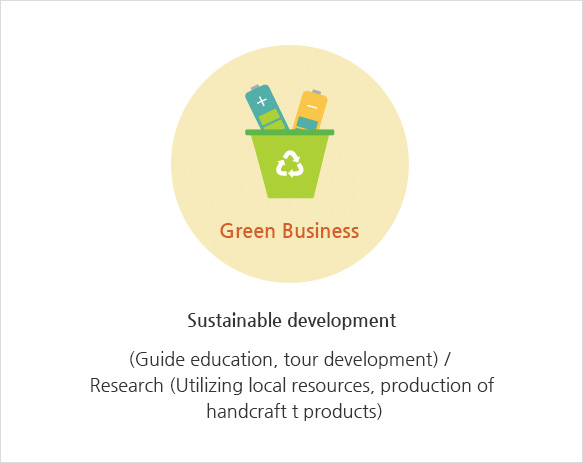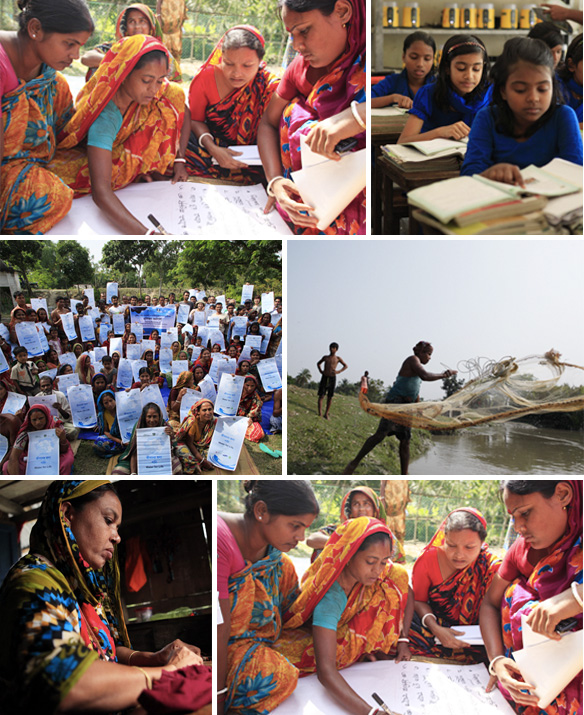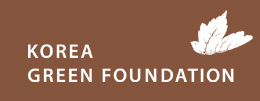mangrove forest restoration
Eco Village
Keep sharing and cooperating
to build a better Asia for all
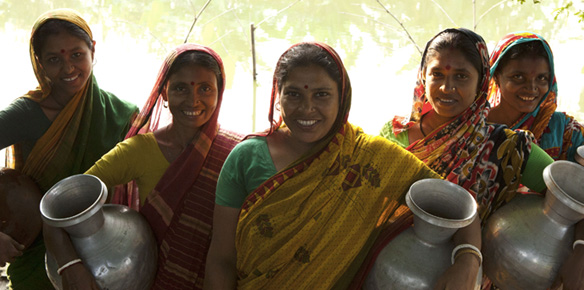
Since its foundation in 2002, KGF has been supporting asian
countries to make its dream of Green Asia come true.
It has distributed solar lamps in the <Light of Life> project, built wells in the
<Water of Life> and now it is carrying on <Eco village> project in
pursuit of making the sustainable eco-village.
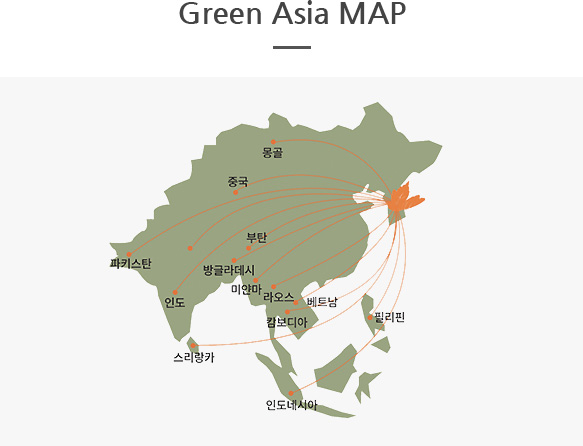
-

-
Nepal
Solar Light lamp support
Emergency rescue support in severe earthquake
Awareness improvement campaign on climate change
Conservation of bio diversity habitat
Dairy farming waste management
-

-
Laos
Well of Life
-

-
Mongolia
Well of Life / Solar light lamp support
Tree planting along the riverside of the Onggi River
that has been desertified with mine development
-

-
Myanmar
Solar light lamp support / Natural forest and
white elephant protection
Kalyana Mitta Development Foundation
-

-
Bangladesh
Solar light lamp support / Solar School / Eco village
Climate disaster (flood, drought, earthquake, etc.)
media report research
Fisherman cooperation campaign
Career education for women
-

-
Vietnam
Well of life / Solar light lamp support
Support for rainwater utilization facilities
Support for climate change governance activities
Awareness improvement on misuse/abuse of insecticide
among minority ethnic groups in Muong, a village in
Northwest region
-

-
Butane
Support for a project to increase income of women in
farming community
-

-
Sri Lanka
Citizen education on climate change
Analysis on social and economic factors of chronic kidney
failure Capability building of civic groups in the regions,
susceptible to climate change
-

-
India
Citizen education on climate change
Analysis on social and economic factors of chronic
kidney failure
Capability building of civic groups in the regions,
susceptible to climate change
-

-
Indonesia
Solar light lamp support
Movement to protect endangered eagles
Natural energy forum
Support for waste management projectsin
agricultural village
-

-
China
Response to climate change in women community
-

-
Pakistan
Support for climate change and forest
conservation activities
Tree planting campaign in lumbering areas
Solar home system
Education to renew energy awareness among women
-

-
Philippine
Mangrove recovery movement
The Abra river conservation in Quiriono village
In the villages lies the wisdom
to save the environment
Korea Green Foundation is trying to create a sustainable village model
with Asian neighbors such as Bangladesh, Myanmar, Cambodia, Laos,
Mongolia, Nepal, etc. Since 2006, KGF has created wells and provided
rainwater storage facilities for residents suffering from drinking water
shortage, and since 2012, it has distributed solar lamp and started to
install power station for the villages’ energy independence.
And since 2015, we've tried an integrated approach through the Eco
Village model to a number of problems in these villages.1) We solve
the problem of limited energy and water resources in the village with
no national power grid and water supply, 2) By diversifying the
income sources of the residents of the agrarian society, sustainable
jobs are provided, and at the same time, the soil is given plenty of
time to recover its capacity, 3) By organizing the Sustainable
Development Committee and providing education to respond to
climate change, residents are capable of actively coping with the
increasingly frequent natural disasters.
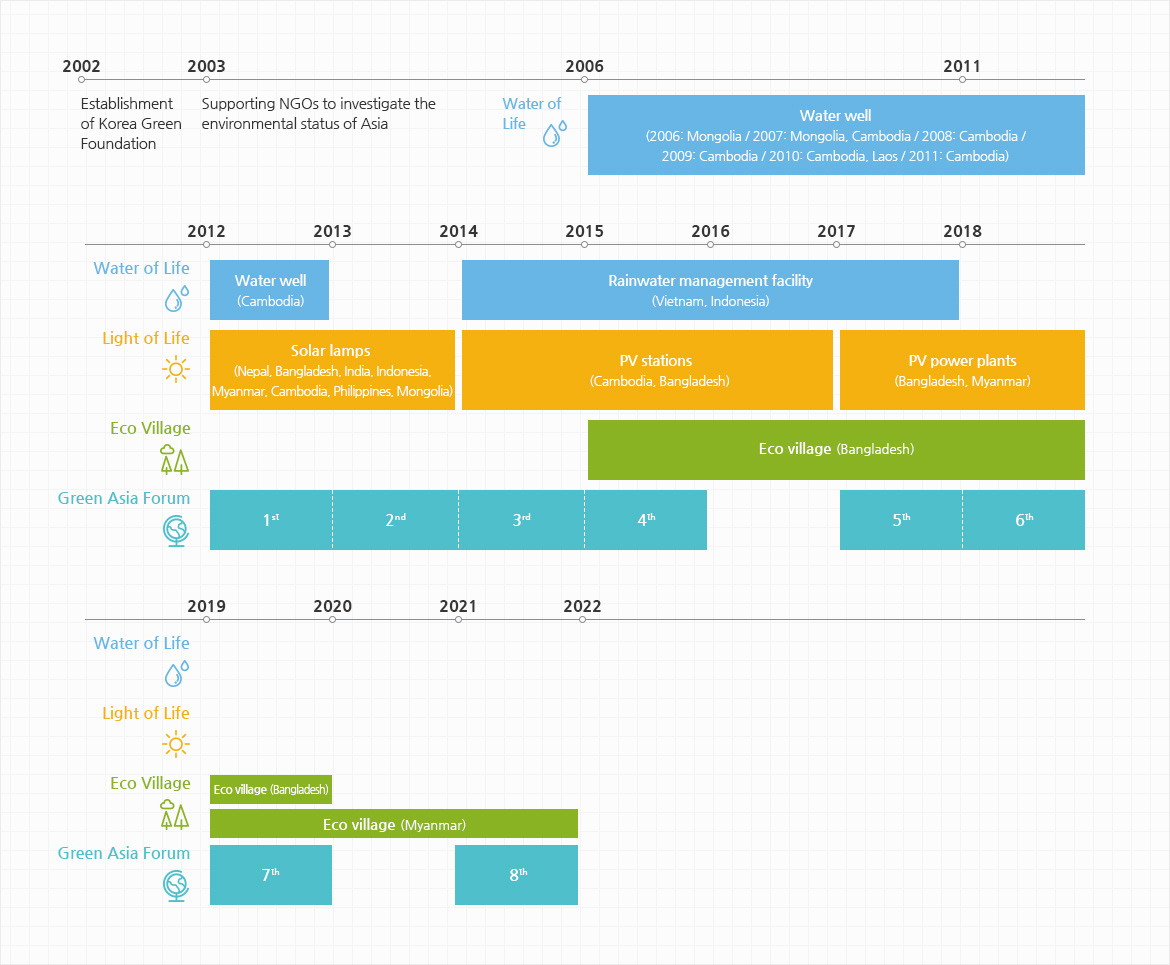
Project Introduction
and research institutes in Bangladesh and
Myanmar to create a sustainable village model.
-
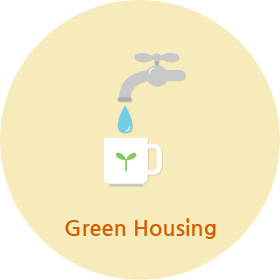 Improvement of eco-friendly residential environmentProvision of drinking water / clean stove / PV power systems /
Improvement of eco-friendly residential environmentProvision of drinking water / clean stove / PV power systems /
mangrove forest restoration -
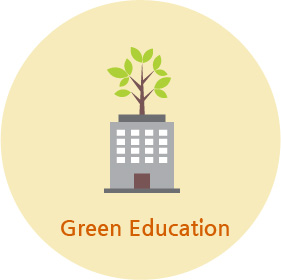 Raising environmental awareness and strengthening
Raising environmental awareness and strengthening
capabilities to cope with climate changeTraining of environmental teachers / environmental education in schools /
eco-friendly farming and fishing education / establishment of
environmental education centers / climate change response education -
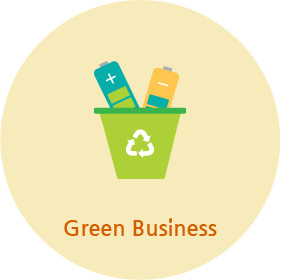 Sustainable developmentEco-tour (guide training, tour development) / green business research
Sustainable developmentEco-tour (guide training, tour development) / green business research
(utilization of local resources, handcraft production) /
sustainable development committee / education of facilities installation
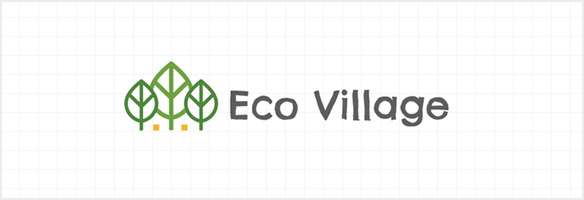
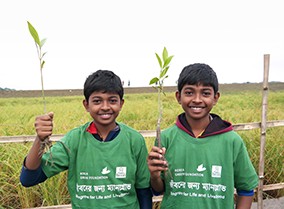
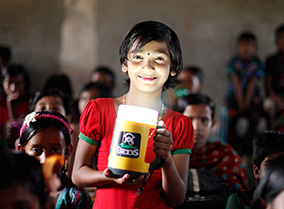
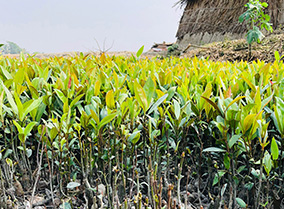
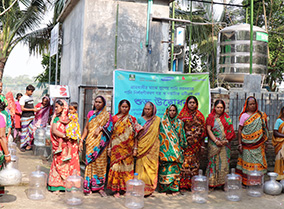
Korea Green Foundation established the first eco-village in Bangladesh's
Banishanta Union from 2015 to 2020. The target village is located in
Sundarbans, the world's largest habitat for mangroves, with three to five times
higher carbon sequestration capacity compared to the general forest.
However, the oil spill in 2014 contaminated 50-70 kilometers of water from
the accident site. Mangrove forests were destroyed, and the residents, animals
and plants including the endangered species, lost their livelihood and habitats.
At the same time as restoring mangrove forests, KGF launched an eco-village
project that attempts to integrate green housing, green business, and green
education to help residents of the Banishanta Union achieve sustainable
development of the village.
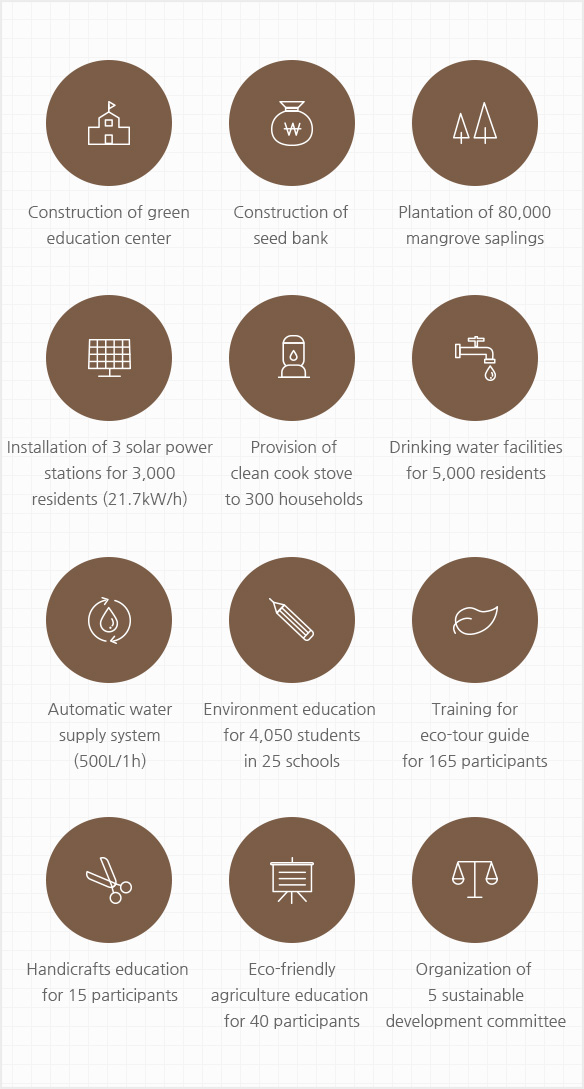
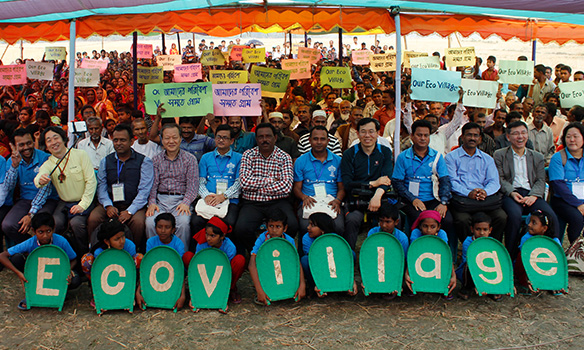
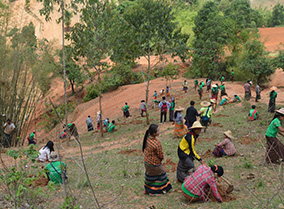
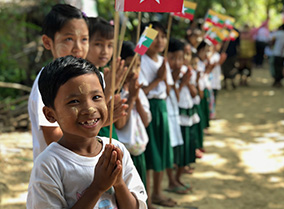
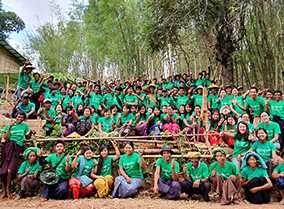
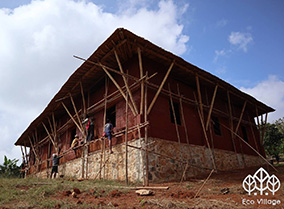
Kyaung Nget, Ye Chankhong, and Wachi Maung, where ethnic minorities live
in Shan State, Myanmar, are peaceful villages based on the agriculture and
abundant resources of Lake Inle. However, as Myanmar's dry season has been
earlier than ever and the rainy season has been shorter, residents are
struggling with water shortages. In addition, due to indiscriminate cultivation
of ginger farming, soil nutrient has been depleted and flood from heavy rain
has been getting severe.
KGF started building the second eco-village in 2019. Six solar stations will be
built in three villages where the national grid is not yet available, and rainwater
catchment facilities will provide sufficient water during the dry season.
In addition, medical supplies were provided to Township Hospitals, which
suffered from insufficient supplies, to cope with the spread of COVID-19 in
2020. In addition to prevention of the spread of infections, we will support
the residents to make a living on their own even in unstable situations.
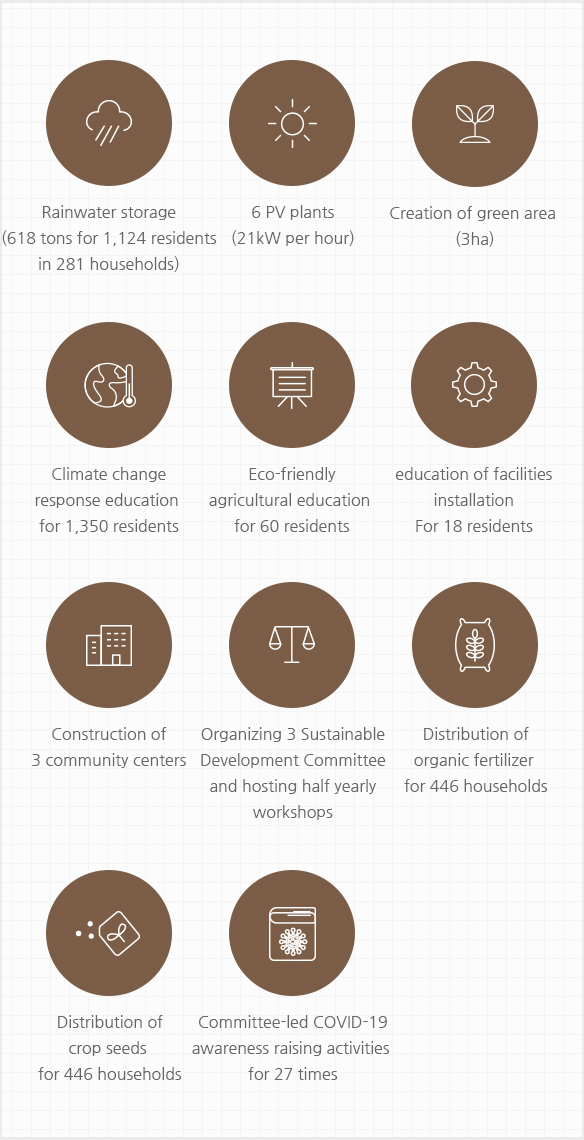
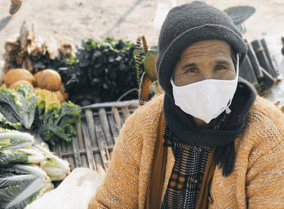
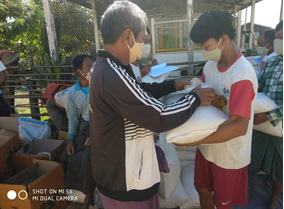
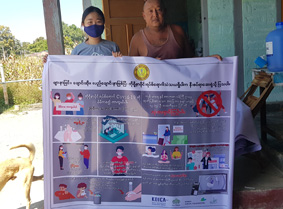
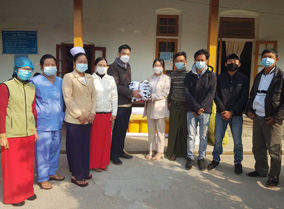
COVID-19 has done more damage to vulnerable people in developing countries.
KGF aims to enhance the capability of 50 villages in Nyaungshwe Township,
where Myanmar's eco-village is located, to respond to COVID-19. All activities
were conducted under the leadership of the town committee to ensure that
the response system would continue.
KGF distributed fabric mask kits to aid residents who cannot afford to buy
masks and to solve the pollution caused by disposable masks. The residents
had to suffer from food shortages as income declined and the price fluctuated.
KGF distributed crop seeds and organic fertilizers along with emergency food
to residents.
As residents use minority languages instead of Burmese, Myanmar's official
language, they are significantly less likely to access COVID-19 information.
KGF translated information and news related to COVID-19 into minority
languages and broadcasted regularly in the village.
In addition, washbasins and water soap have been installed throughout the
multi-use facilities so that residents can wash their hands daily to prevent
infectious diseases.
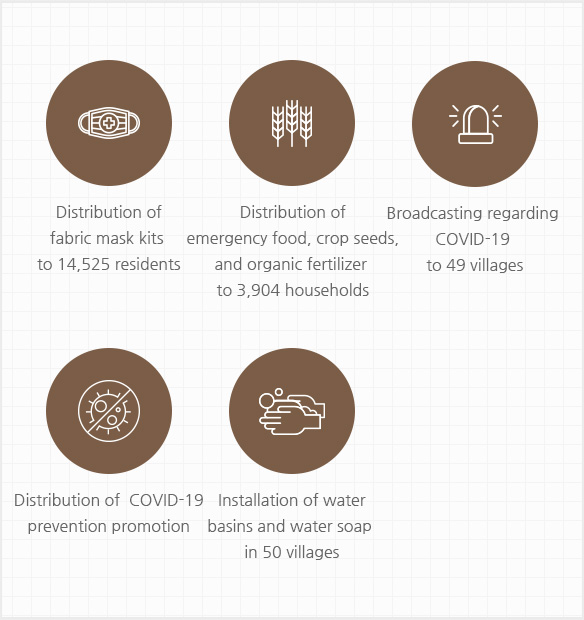
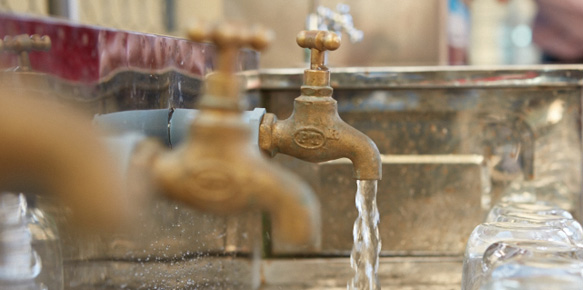
Every year, as many as 20,000 people die from disease like cholera,
parasite and typhoid, due to no access to clean drinking water.
Especially, almost 4,500 people with weak immune system die after
drinking contaminated water.
Since 2006, Korea Green Foundation has been helping
people in neighboring Asia countries like Mongolia, Laos, Cambodia
and Vietnam to ensure them to have access to clean water
by supporting well and rainwater management system
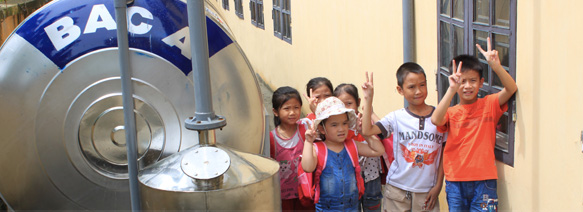
Cu Khe Village, Thanh Oai District, Hanoi, Vietnam
The rainwater facilities with 22 tons of capacity were built at preschools and primary schools July, 2014 to provide access to drinking water for 380 preschoolers and 260 primary school students and help understand the importance of rainwater resources.
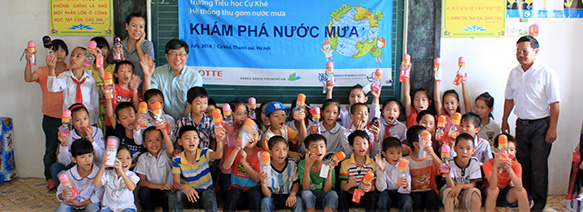
Trường tiểu học An Nghĩa, Ho Chi Minh, Vietnam
Rainwater utilization facility with 19 tons of capacity was built at An Nghĩa November, 2015. There were 325 students, studying at the school and with introduction of the facility, 649 students, including 100 preschoolers and 224 middle school students who were also attending to the school building, were able to drink clean water.
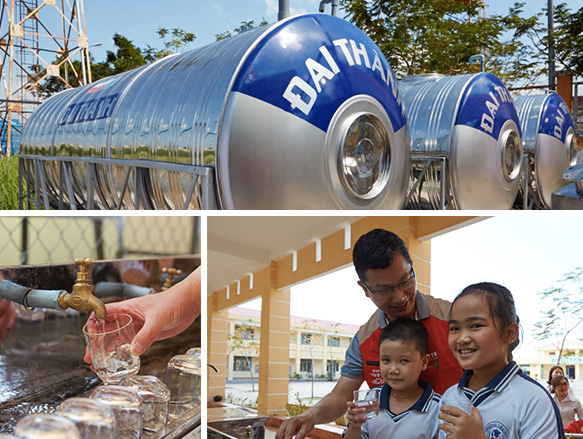
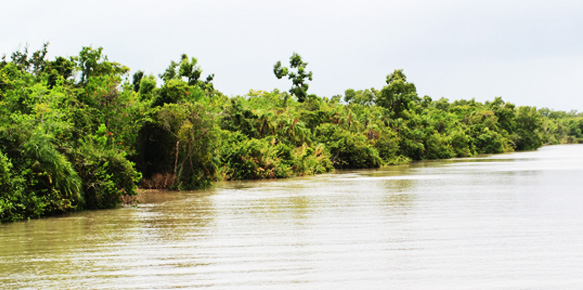
Eco Village Project
Korea Green Foundation has been working together with neighboring Asian countries like Cambodia, Laos, Mongolia and Nepal since 2006. For those with drinking water problems, the foundation built wells and rainwater utilization system in cooperation with local people, to build healthy and economic living environments for them. Starting from 2012, the foundation began to distribute solar lamps to villages in Asia with underdeveloped electricity infrastructure. Along with these efforts, the foundation began to think about life of people in neighboring regions who were affected by natural disasters from climate change like flood, typhoon and earthquake. A safe shelter, education to prepare for the future and sustainable job…
Paying attention to environmental value of each region and preserving the value for the people to respond to the climate disasters more wisely.! The foundation was set to develop a sustainable development model for community including education, drinking water and eco tour. That was how. <Eco Village Project> started.

Korea Green Foundation is building an eco-friendly sustainable development
model in Banisanta Union, near Sundarbans, Bangladesh,
in cooperation with a local environmental group, BEDS, municipal
government and Khulna University.
